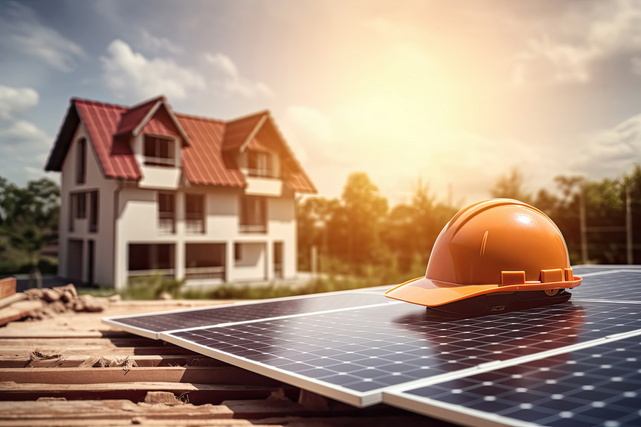Advancements in technology have led to new products that can dramatically improve home safety. Smart home devices like water leak detectors, smoke alarms, carbon monoxide monitors, and security cameras can all help prevent damage and alert homeowners if there is an issue. Installing these devices and connecting them to a home automation hub can provide real-time notifications so that problems can be addressed quickly.
Besides safety-focused smart devices, modernizations like solar panels are becoming more affordable and can lower utility bills while also providing some energy security if the power goes out. According to the good folk at solar company Vivint Solar, adding solar power for your home through rooftop solar panels or small off-grid solar and battery storage systems can make an enormous difference during a blackout. And recent building code updates focused on resilience, like requiring hurricane clips and stronger roofs in hurricane-prone areas, also boost safety.
How Safety Features Impact Insurance
The smart home devices, solar panels, and resilience upgrades mentioned can all positively influence what homeowners pay for insurance. Insurance companies look closely at the level of safety and vulnerability to risk when pricing policies. Everything that reduces the chances of making a claim saves the insurer money, and those savings get passed on as discounts.
Specific discounts for common safety improvements like a new roof, impact-resistant windows and doors, fire and burglar alarms, and leak detection systems are commonly available. Furthermore,some insurers even offer a “smart home discount” for having a comprehensive connected-device system installed.
Solar also plays a role, with insurance implications going both ways. Rooftop solar can make claims less likely due to having backup power, but solar panels themselves needing coverage against damage may make a homeowner policy slightly more expensive. In most cases, the backup power advantage prevails, and insurance costs still drop for solar-equipped homes.
The Financial Value at Stake
Given the savings available by showcasing safety and security, upgrading can pay off through insurance discounts. As an example, adding water leak detection can lower premiums by 5% to 15%, while connecting a smart home system can save up to 20%.
For a home insured for $300,000 with $1000 in annual premiums, this could mean discounts in the hundreds of dollars per year. With the average smoke detector costing less than $25 and water sensors as little as $50 each, the payback is under a year, making additions like these a no-brainer for most homeowners.
And more extensive upgrades like solar have even higher potential savings. Average annual home insurance premium reductions of $100 to $200 for going solar are common, helping towards a complete payback on the solar installation within 5 to 10 years when coupled with the electric bill reductions.
The Future of Insurance and Safety Tech
As modern safety devices get less expensive and more widely adopted, insurance companies will continue encouraging their use through premium incentives. New technologies are also on the way, like air quality monitors to prevent mold and bacteria growth, foundations sensors to catch flooding risks sooner, and tools to monitor the structural integrity of homes.
State insurance commissioners and consumer advocates are even getting involved to push more discounts for modern devices. Changes currently under consideration could make smart home tech qualification easier, expand discount availability to more homeowners, and potentially even make detectors and sensors mandatory to contain wildfire impacts out west.
Conclusion
Regulation combined with market forces will likely bring more access to safety-driven savings for homeowners across the country. And the insurance angle provides yet another reason to take advantage of innovations like solar power and smart devices as they not only boost safety but also save money on premiums.

